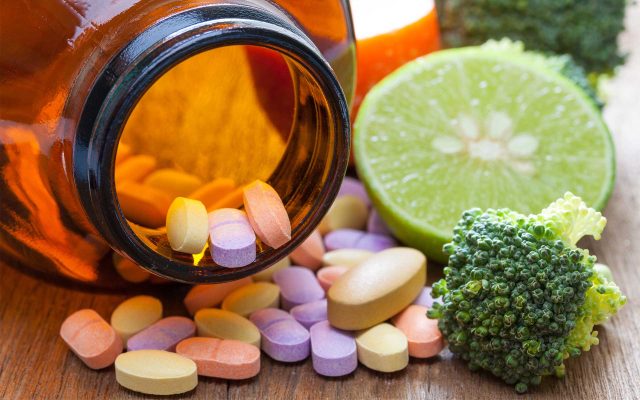Ever wondered whether you should eat before popping that pill? Everyone’s got advice. “Take it with food,” they say. But does it really matter? What if you forget to eat? What if you take your pill with milk, or juice, or maybe coffee? Is that okay? The truth is… it’s complicated.
As a clinical pharmacist, I’ve heard all the myths. And I’ve seen the confusion. Let’s break it down, piece by piece, and get to the bottom of whether you really need to eat before every medication.
Why Does Food Matter with Medicine?
It’s all about how the body absorbs medicine. Pills, when swallowed, travel to your stomach and intestines. From there, they get absorbed into the bloodstream. Simple, right? But food can mess with that. Sometimes, food helps the medicine get absorbed faster or more effectively. But sometimes, food can slow things down. Or worse—make it less effective.
Absorption: Some meds are absorbed better when there’s food in your stomach. Food can help them dissolve. On the flip side, other meds are absorbed best on an empty stomach. No food, no distraction.
Irritation: Ever take a painkiller and feel your stomach burn? Some meds irritate the stomach lining. You can avoid this by taking them with food.
Speed of Action: You pop a pill. With food? It may take longer to kick in. No food? It might work faster. But it could upset your stomach too.
Myth #1: You Need to Eat Before Every Medicine
“Always eat before you take your pills,” they say. Is that true? Not really”.
The Reality: Not all medications are the same. Some need food, some don’t. For example, thyroid medicine, like levothyroxine, is absorbed better when your stomach is empty. If you eat, it won’t work as well. Simple as that. So, next time, take it 30 minutes before breakfast, on an empty stomach.
But then there’s metformin. That’s for diabetes. You’re supposed to take it with food to prevent nausea. See the difference?
So no, not every pill needs food. Always read the label. Don’t assume.
Myth #2: Taking Medicine with Milk is Fine
Milk: It’s easy, comforting. But is it okay to take your meds with it?
The Reality: Milk’s not always the best choice. Tetracycline, an antibiotic, is a good example. If you take it with milk, the calcium binds to the medication and makes it useless. So, your pill just doesn’t work. Milk’s also a problem with iron supplements. The calcium in milk can block the iron from getting absorbed into your body. That’s not good.
Sure, it feels like milk should be gentle on your stomach. But it’s not always gentle on your medicine. Water? Much better.
Myth #3: Tea or Juice is Fine Instead of Water, Tea, juice… sounds harmless, right? Maybe not.
The Reality: Grapefruit juice is a big one. If you take certain medications—like statins for cholesterol—it can change how your body processes them. The medicine stays in your system longer. That can cause side effects. Same goes for cranberry juice. If you’re on warfarin, a blood thinner, cranberry juice can increase the risk of bleeding. It sounds weird, but it’s true.
Juice or tea might seem like a quick fix. But water? Water’s your best bet. It won’t mess with your meds. Stick to it.
Myth #4: More Food Means Better Protection from Side Effects
Some people think the more food, the better. “If a little food helps, more food must be better,” right?
The Reality: Not really. More food isn’t always the answer. Let’s talk about iron supplements. They work best when your stomach is not full. When you eat too much before taking your iron pill, food can block the iron from getting absorbed. That’s a problem.
And if you’re on painkillers like ibuprofen, a big meal can slow down how fast the pill works. It might feel like you’re protecting yourself from a stomach upset, but you’re actually slowing down the medicine’s effectiveness.
A small snack? Sure. A huge meal? Probably not a good idea.
Myth #5: All Pills Are the Same—Food Doesn’t Matter
Some people think all medications are the same. But that’s just not true.
The Reality: Painkillers like acetaminophen don’t need food to work. But antibiotics? Well, it depends. Some need food to work well, others don’t. Ketoconazole (for fungal infections) is one that requires an empty stomach. If you eat, it won’t be absorbed properly. Alendronate (for osteoporosis) is another that needs an empty stomach.
It’s never “one size fits all.” Different meds have different rules. Don’t assume you can take everything the same way.
Pregnancy, Health Conditions, and Age—A Special Case
Pregnancy, age, and medical conditions all make a difference when it comes to food and medicine. For example, pregnancy changes your metabolism, which can affect how you absorb medications. Nausea is common too, so taking pills with food might be a good idea. But always check with your doctor first.
Elderly people may have slower digestion, so they sometimes need to take medications with food to help absorption. Also, older adults often take several medications, so drug interactions are something to keep an eye on.
People with liver or kidney issues might need to adjust how they take their meds. Some medicines get absorbed differently when you have liver problems, so food could either help or make it worse.
Conclusion: Follow the Directions, Always
So, do you need to eat before every medicine? Not really. Some pills need food, some don’t. Some should be taken with snacks, some on an empty stomach.
Here’s what you should remember:
Thyroid meds? Take them on an empty stomach.
Metformin? Take it with food.
Painkillers? It depends. Small snack usually works best.
Antibiotics? Follow the instructions carefully.
When in doubt, always check with your pharmacist. We’re here to help. It might feel like a small thing, but taking your medication right can make a huge difference in how well it works. You don’t want to waste a pill or make it less effective.
FAQ SECTION:
Q1: What if I forget to eat before my pill?
Ans: No big deal. Just take it the next time as directed. But don’t double up on your dose. And if you’re unsure, ask your pharmacist.
Q2: Is it okay to drink coffee with my meds?
Ans: Coffee can interfere with some medications, especially those that affect your blood pressure or heart rate. It’s safer to avoid coffee until you know how it interacts with your meds.
Q3: What does “take on an empty stomach” mean?
Ans: It means no food for at least 30 minutes before, and ideally, wait an hour after taking your medicine.
Q4: Can I drink alcohol while taking meds?
Ans: It depends on the medication. Some drugs mix badly with alcohol. Always check before having a drink.











